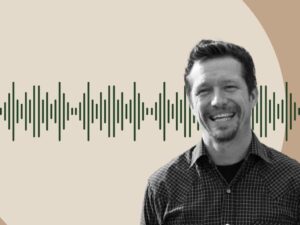February 17, 2017; Atlantic, “CityLab”
Brentin Mock provides a great service to casual users of the word “blight” to describe urban neighborhoods. Revived and refueled with racial connotations by President Trump, the word “blight” has a storied history among planners and journalists. Mr. Mock’s essay, “The Meaning of Blight,” tells some of those stories, bolstered by academic and journalistic research and a thematic weaving of example and principle.
How does “blight” differ from “slum”? While both slum and blight carry connotations of crime and personal risk, blight conjures up an image of abandonment, white flight, abandoned homes and businesses, and little opportunity. Slums, by contrast, connote overcrowding and lively street scenes with active legal and illicit commerce—both inside rundown structures and outside under lampposts and in alleyways. As Mr. Mock notes, these connotations evolved with the unmistakable stamp of race embedded in each description. When the urban slums turned from Irish and Italian to African American, they became blighted and subject to what James Baldwin called “Negro Removal.” By the early 1970s, the relocated African American communities became characterized as “ghettos,” a kind of old-style slum but with the heavy hand of forced segregation.
Sign up for our free newsletters
Subscribe to NPQ's newsletters to have our top stories delivered directly to your inbox.
By signing up, you agree to our privacy policy and terms of use, and to receive messages from NPQ and our partners.
Have a little sympathy for President Trump, who has passed blindfolded through this evolution without sensing any change. No matter what you call it, to a developer, a community is a deal. If his characterizations of African American communities don’t distinguish among abandoned urban areas, prosperous majority-minority urban districts, economically failing African American suburban cities, thriving multiracial suburbs, and rural minority communities, it’s not just a lack of imagination. As a nation, we don’t have words to capture the diversity of lived experience in the U.S. Instead, our words describe who lives there and how they should be treated.
HUD’s conflation of slum and blight leads to anomalies like a story in Pittsburgh’s Tribune-Review that complains that blight-fighting funds are headed to “some of Pittsburgh’s hottest neighborhoods.” In his essay, Mr. Mock quotes New York City urban planner Justin Garrett Moore, saying that the designation “blight” is the ticket to a grant. Then, in a story from this week’s Washington CityPaper, we witness the malleability of blight. Residents of D.C.’s historically African American community are protesting the mayor’s inaction in addressing historic but “ramshackle” houses that are being left to rot. All around, confusion reigns.
It seems like our urban policies are prisoners of the words we choose, then choose to abuse. Is “blight” code for “black”? Yes, but more perniciously, all the descriptors we give to communities end up describing the inhabitants and not their socioeconomic dynamics. It’s time for a new, more diverse typology that identifies communities by their assets.—Spencer Wells













